
Contemplation and the polis
The fifth chapter of the book “Vita Comtemplativa”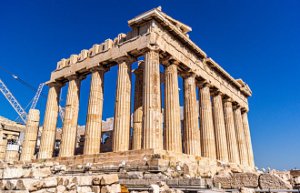 is The pathos of action, it begins by describing the two sacred concepts of the Jewish tradition: God and Sheba, for Jewish culture God is Sheba, that is, he is redemption, the immortal (page. 107), yesterday time is suspended, that is, compared to Han’s concept, it is inactivity.
is The pathos of action, it begins by describing the two sacred concepts of the Jewish tradition: God and Sheba, for Jewish culture God is Sheba, that is, he is redemption, the immortal (page. 107), yesterday time is suspended, that is, compared to Han’s concept, it is inactivity.
The creation of the human being is not the last act of Creation, only the Sabbath rest completes it, the world is similar to the bridal chamber: “but the bride is missing. Only with the Sabbath does the bride arrive” (Han, 2023, p. 108), which is a quote from “Der sabbat” by Heschel.
The analogy with the bride will also be used in the parables of the brides, the arrival of “that day” when the groom comes to look for her and must find the lamps lit (developing around the theme of prudence), Arendt will modify the idea of rest divine complementing it with the principle freedom for a new beginning (or a fresh start, necessary in many stages of life), says Han’s quote:
“with the creation of the human being, the principle of the beginning (which in the creation of the world was in the hands of God and, therefore, outside the world) appears in the world itself and will remain immanent in it as long as there are human beings; which, of course, naturally, ultimately, means nothing other than that the creation of the human being as a ‘someone’ coincides with the creation of freedom” (apud Arendt, Han, 2023, p. 109).
“The “feeling of reality” that is due only to action; that is, when acting and producing an effect, it completely represses the feeling of being. The feeling of festivity, in which it is possible to experience a superior reality, is foreign to Arendt” (Han, 2023, p. 112).
This concept is the temenos of the Greek polis, which means the sacred space cut off from the public space that is reserved for deities; a peribolos (literally a playpen or enclosure), that is, a fenced space, an area of the temple delimited by walls. Temenos is a templum, a consecrated and sacred place, the word contemplation goes back to the templum (in picture the acropolis).
Thus the templum is part of the polis, on his trip to Greece, Heidegger has the acropolis in mind when he writes about the polis: “… this polis did not know, therefore, subjectivity as a measure of all objectivity. She submitted to the yoke of the gods, who, in turn, were subjected to destiny, to Moirá” (apud Heidegger, Han, 2023, p. 113-4).
By presenting it only as freedom and action, Han criticizes Arendt, the cultural dimension of parties, rituals and games has no place in her thinking and they were members of the polis.
HAN, B.C. (2023). Vita Contemplativa: In Praise of Inactivity, transl. Daniel Steuer, USA, ed. Polity.
Contemplation and the Self
The third chapter on Byung-Chul’s “Vita Contemplativa” begins with a text by Walter Benjamin on the painting Angelus Novus in ink, pastel chalk and watercolor on paper by Paul Klee from 1920, which is currently in the Israel Museum in Jerusalem, in the Christian collection.
begins with a text by Walter Benjamin on the painting Angelus Novus in ink, pastel chalk and watercolor on paper by Paul Klee from 1920, which is currently in the Israel Museum in Jerusalem, in the Christian collection.
Describe Benjamin’s quote: “an angel is represented there who appears as if he were moving away from something he is facing. His eyes are wide, his mouth is open, and his wings are outstretched. The angel in the story must look like this. He turned his face to the past. Where a chain of events appears to us, there he sees a catastrophe that incessantly piles rubble upon rubble, sliding before his feet. He would very much like to linger, awaken the dead and bring the fallen together” (apud Han, 2023, p. 57) and continues.
Benjamin’s text ends with a sentence: “What we call progress is a storm” and thus begins the chapter “From action to being”.
Hannah Arendt was the first to understand the 20th century as a time of action, says the author, later in the text the author will remember that the anthropocene was the result (I would say the attempt, since nature rebels) of the submission of nature to human action, losing our autonomy and dignity, we “make” history by acting, he states.
What can we do about this catastrophic action on nature, Arendt confesses that she cannot offer any solution, cited by Han: “address the essence and possibilities of the action, which had never been shown so openly and revealed in their greatness and at their peril” (apud Han, 2023, p. 59).
She points out a path in thought that would be a type of “philosophy of politics” that would bring a reflection on the problematic of human action, in “Vita activa” she exposes (I think recovers) human action in its grandeur and dignity (page. 60).
Reflecting further on the figure of Angelus novus (above), “his wide eyes reflect his impotence, his horror. Human history is an advancing apocalypse. This is an apocalypse without an event”, the relationship with current events is remarkable.
Years before Arendt published Vita Activa, Heidegger had given a lecture on Science and Reflection where he said that as opposed to action that moves us forward, reflection brings us back to where we always already are. It opens up to us a being-there (Da-Sein) that precedes every doing, every action and that takes time (Han, 2023, pg. 62).
The same Heidegger will write in Black Notebooks: “What would happen if the presentiment of the silent power of inactive reflection disappeared?” and Han reflects: “the presentiment is not deficient knowledge. Rather, it opens up to us the being, the there, which escapes proportional knowledge. Only through presentiment do we have access to that place in which human beings always find themselves…” (page 63).
HAN, B.C. (2023). Vita Contemplativa: In Praise of Inactivity, transl. Daniel Steuer, USA, ed. Polity.
Life and contemplation
No, it is not about the art of observing nature or the universe, as the act of observing is also an “active life” as there will certainly not be any interpretation or detail that catches our attention.
universe, as the act of observing is also an “active life” as there will certainly not be any interpretation or detail that catches our attention.
It is about other meanings: listening without interpreting, looking with a purified gaze and understanding what is incomprehensible to human reason, so it is not a rational attitude, nor a madness or sensitive delirium, it is an exercise of “inactivity” writes Byung- Chul Han.
The author writes in Vita Contemplativa: ou sobre a inativa (Han, 2023, p. 11): “Inactivity constitutes the Humanum. What makes doing genuinely human is the amount of inactivity in it. Without a moment of hesitation or restraint, acting degenerates into blind action and reaction. Without rest, a new barbarism emerges.”
Therefore, contemplative inactivity is not to be confused with laziness, absence of action, but a rest for clairvoyant action and deep speech, says the author: “It is silence that gives depth to speech. Without silence there is no music, but only noise and noise. Play is the essence of beauty. Where only the scheme of stimulus and reaction, of lack and satisfaction, of problem and solution, of objective and action, prevails, life is reduced to survival, to naked animal life” (idem) and it is not by chance that it is confused with current modern life.
We are not machines always destined to function, the true life of conscious action begins when the concern for survival ceases and the need for raw life is born.
The confusion appeared because of the confusion between history and culture, not the history of ideas (in the sense of the Greek eidos), but that which ignores culture and deals only with the power and oppression of peoples, says the author: “action is, in fact, constitutive for history, but it is not the formative force of culture” (Han, 2023, p. 12) (paint: Contemplation of philosopher, Rembrandt, 1632).
And he adds in the same passage: “Not war, but celebration, not weapons, but jewelry, are the origin of culture. History and cultural do not coincide” (Han, idem).
“Jewelry” may seem strange, but the core of our culture is ornamental. It is situated beyond functionality and utility. With the ornamental that is emancipated from any purpose or utility, life insists on being more than survival” (idem).
The great religions have established the sacred in inactivity: Christian Sunday, the Jewish Sabbath, Islamic Ramadan, these are not just about inactivity, but a day of “contemplation”.
The “active” man searching for an “intense” and unbridled life of stimuli and responses falls into a void of meaning and into merely fighting for survival, little or nothing human resists, and if we want to return to the civilizing process, culture, the ornamental and the party must return to everyday life, time for Christmas and end-of-year celebrations, time to stop.
HAN, B.C. (2023). Vita Contemplativa: In Praise of Inactivity, transl. Daniel Steuer, USA, ed. Polity.
Intense war and freed hostages
Russia stated this Sunday (26/11) that it shot down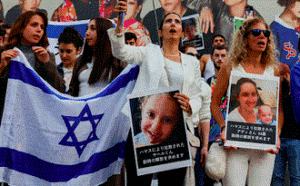 drones in the four regions at war, including some near Moscow and two missiles were also intercepted, while Ukraine claims to have eliminated more than a thousand soldiers and 30 Russian tanks in the war regions.
drones in the four regions at war, including some near Moscow and two missiles were also intercepted, while Ukraine claims to have eliminated more than a thousand soldiers and 30 Russian tanks in the war regions.
On Saturday there was a strong drone attack against Kiev, according to Moscow the biggest since 2022.
War negotiations continue, but the sanctions imposed by Moldova have created a new zone of conflict between Moscow and the West, Moldova fears being Russia’s next target.
The most serious thing about the Hamas and Israel conflict is the use of civilians as hostages (photo).
In the Gaza strip, the truce between Hamas and Israel continues, the exchange of hostages by Hamas soldiers continues, yesterday was the third day, in total | Hamas released 58 hostages while Israel released 117 Palestinians, in order these were the numbers of hostages released.
First day of truce 24 hostages, second day (Saturday) 17 hostages and third day (Sunday) 17 hostages, although the agreement is only for 4 days, and would end today, the expectation is that it can progress until Wednesday. fair.
Pope Francis, always optimistic, said in his last reference to war that humanity (of course those who make political decisions) chose war instead of peace.
Conflicts are already a major humanitarian tragedy and could become a serious humanitarian and civilizational crisis.
The final examination of conscience
We can be (illusory) building personal happiness (good life in philosophy)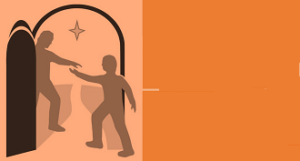 without caring about the Other, society today lives the denial of the Other and pain, but this is the path to disputes, rivalries and in the last stage the wars.
without caring about the Other, society today lives the denial of the Other and pain, but this is the path to disputes, rivalries and in the last stage the wars.
The contemporary world lives with disbelief, a lack of individual and collective awareness, what matters is solving one’s own problem, there is no shortage of literature for this, either for easy success or for individual consolation with self-help books, there are no shortage of recipes considered “spiritual”, but in the exercise society, it is a despiritualized asceticism.
How we treat pain means how we see poverty, neglect of health (not even medical plans can solve it anymore), lack of basic sanitation, public abuses of immorality, not to mention prison systems, the destruction of drugs and the various social marginalizations.
The examination of conscience, as good literature says, is that awareness of something, not that of the comfort of gated communities, of social isolation in refuges, but that awareness of oneself and the Other, which is other than the social group and its illnesses, not forgetting the morals, which seem to have lost all references.
There is no shortage of literature and thought on these issues, but the final question is how do we reverse these issues, how do we avoid growing hatred, fanatical polarization and, at the end of it all, the tendency towards increasingly cruel wars involving diverse peoples?
The examination of conscience is what side we are on, not of public and even political irrationality, but on the side of those who suffer, those who have lost hope, those who, for a certain reason, whether justifiable or not, look at life as a burden. .
The final Examination of Conscience is the one, which is also biblical (Mt 25:34-35): “‘Come, you who are blessed by my Father! Receive as your inheritance the Kingdom that my Father prepared for you since the creation of the world! For I was hungry and you gave me something to eat; I was thirsty and you gave me something to drink; I was a foreigner and you welcomed me into your home; 36 I was naked and you clothed me; I was sick and you took care of me; I was in prison and you came to visit me’ “.
So it’s about doing this personal and social examination of conscience, which side are you on?
Illness, health systems and abandonment
Illness is part of the human experience, it is not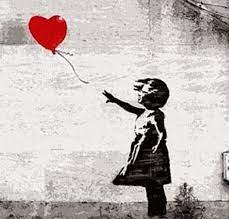 specific to this or that class, race or ethnicity, however the way we treat different types of humans is often disrespectful and a symptom that something is wrong in the social structure.
specific to this or that class, race or ethnicity, however the way we treat different types of humans is often disrespectful and a symptom that something is wrong in the social structure.
First, of course, there must be a system that allows access to treatments as widely as possible and safely, then comes the issue of proximity to family, friends and especially the system itself that must treat the patient and not just the disease.
The experience of human fragility in different situations, and also in a serious illness, is what should awaken greater solidarity and harmony between the people who are close to us and the health systems. The pandemic revealed great fragility, although the systems worked, the degree of solidarity and responsibility remained at sordid levels.
We did not improve humanly with such a huge scourge that shook the entire planet, the expectation that we would emerge more supportive of this experience was not confirmed.
The Korean-German philosopher expressed in a lecture at the university…., he expressed his post-pandemic feeling like this: “it is dramatic that we are not able to touch another person, as this transmits incredible energy”, “we no longer touch each other, we don’t even tell stories among ourselves” (a reference to his latest book “The Narration Crisis”), and he said: “we are more alone than ever”.
In the book “The palliative society”, Byung-Chul, quoting Ernest Jünger, writes: “Tell me your relationship with pain, and I will tell you who you are!”, our relationship with pain in society shows how we live today, those who speak of peace, many Sometimes they support and even desire war, not all of them of course.
HAN, B.C. The Palliative Society: Pain Today , transl. Daniel Steuer, NY: Polity Press, 2021.
The water problem
One of the serious differences between developed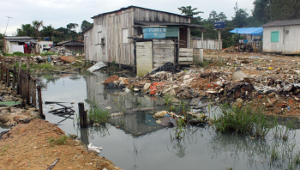 and developing countries is the serious global crisis in water resources, which has a direct correlation with social inequalities.
and developing countries is the serious global crisis in water resources, which has a direct correlation with social inequalities.
In regions where water shortages are at critical levels, such as some Arab countries and even Latin America and mainly on the African continent, where the average water consumption per person is nineteen cubic meters/day, or fifteen liters/person may seem exaggerated, but baths and washing utensils and clothes should be considered.
Just for comparison purposes, in New York there is a consumption of clean and drinkable fresh water of two thousand liters/day per person, of course this is an exaggeration, clothes and utensils are washed with drinking water.
According to Unicef, less than half of the world’s population has access to drinking water, irrigation accounts for 73% of water consumption and 21% goes to industry, only 6% is for domestic consumption while one billion and 200 million people ( 35% of the world’s population) do not have access to treated water.
One billion and 800 million people do not have adequate basic sanitation services and thus the realization that ten million people die as a result of intestinal diseases transmitted by water, a basic resource for life, water is neglected.
Giving drink to those who are thirsty is not a catchphrase, it is a vital necessity
Concrete actions against poverty
At first glance, the solutions may seem simplistic: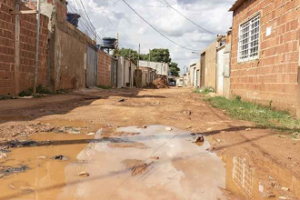 injecting capital and distributing goods to the poor, but in the medium- and long-term concrete measures and public policies are needed.
injecting capital and distributing goods to the poor, but in the medium- and long-term concrete measures and public policies are needed.
The human resources necessary to produce, combat and help in extreme cases of poverty are necessary and this means production, as if there were very advanced equipment, but without people who know how to operate it, advanced in this case is distribution.
We need to improve human resources, or rather our humanity around serious social security problems, given the state of misery at quite high values for a world that may have problems with shortages of food, sugar for example due to warming and grains due to wars.]
The numbers are high, in Brazil data published in the press state 32 million people, in Argentina in crisis the newspapers claim 40% of the population, and injecting resources is little if there are no medium and long-term projects that are sustainable.
In the past, reconstruction plans for post-war Europe required an injection of capital, as the available labor force was adequate. This was the period in which the World Bank was created, whose name was the International Bank for Reconstruction and Development (BIRF) , the result was achieved, but it is necessary to know that Europe exploited the colonies, in fact this was a hidden conflict.
The funding resources in the so-called “third world” through the IDB (Inter-American Development Bank) have not achieved great results and every now and then there are countries in crisis, with high inflation and loss of resources in the productive sectors.
Poverty has increased and continues to increase, for two reasons: growth in poorer regions is greater than in rich countries, without a policy of full employment and greater income distribution, and the lack of ability to adjust to new conditions of technological change widen the gap between poor and rich countries.
Therefore, concrete public policies are necessary to reduce poverty and train human resources and establish policies to combat poverty on a global scale, if there is so much money for weapons (see the prices of planes, ships and ammunition for wars), why wouldn’t there be for the fight against poverty?
This problem is what worsens political polarization, a lack of plans to combat poverty in the short and medium term.
Dialogue perspective and Latin America
Some changes on the world stage give hope for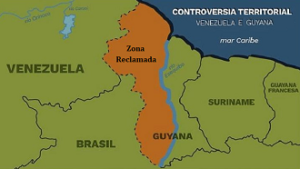 peace, the 5-day truce and exchange of hostages in Palestine, Germany returns to dialogue with Russia and there is already popular pressure for peace in Europe, in Latin America tension between Venezuela and Goiânia and election of the ultra liberal Javier Milei in Argentina, by a greater margin than the polls showed.
peace, the 5-day truce and exchange of hostages in Palestine, Germany returns to dialogue with Russia and there is already popular pressure for peace in Europe, in Latin America tension between Venezuela and Goiânia and election of the ultra liberal Javier Milei in Argentina, by a greater margin than the polls showed.
What few or no analysts will say, because polarization goes from the periphery of countries to the most independent journalism, is that there is no single solution for either pole and there are errors in analysis and principles at both poles, polarization itself is already a nonsense.
The dialogue between Germany and Russia is certainly what draws the most attention, the last dialogue that was held between the two countries was on December 2, 2022, and this resumption could be a glimmer of hope for a turnaround in the escalation of war in Ukraine and Russia.
On the other hand, the world’s greatest hope at the moment is a possible peace agreement that could release some of the 240 people taken hostage in a Hamas attack on Israeli territory that killed around 1,200 Israelis, with signs of cruelty and barbarity, Israel also reacted with brutality and force and a large part of the civilian population of Palestine suffered.
Israel’s ambassador to the USA, Michael Herzog, was the one who announced on ABC television that there were “serious efforts” for a 5-day truce in exchange for the release of hostages, and the Qatari government is also working on a possible agreement.
The election of Milei, a 52-year-old candidate, took place by a margin that no survey indicated, he received 55.95% of the votes in the dispute against the government leader and Minister of Finance of the current government Sergio Massa with 44.04% of the votes, indicating that the Argentine people, although Milei is little known, bet on a very radical change, Argentina is in a deep economic crisis.
Several governments recognized Milei’s victory, but the ideological division is deep, and there is tension between Venezuela and Guyana (formerly English Guyana, with a rich history of indigenous peoples and internal struggles for emancipation) and although it is a region that has already been an issue in history, the reason for the dispute now is because oil was discovered in the Essequibo River region, which came to be called Guyana Essequiba, with a strong indigenous presence (figure).
After several agreements, in 1904, 19,630 km2 were handed over to the colony of England and 13,570 km2 were agreed with Brazil and to this day everything that establishes the limits between these three countries, there were several previous agreements, in 1966 Guyana became independent of the Kingdom United.
Meditate or pray
There is no space in contemporary life for time spent caring for one’s inner life,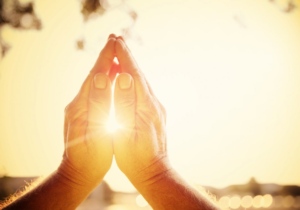 the hustle and bustle and demands of the “society of tiredness” pushes man to an action that is not always meaningful, in many cases a space of time is needed for the personal life.
the hustle and bustle and demands of the “society of tiredness” pushes man to an action that is not always meaningful, in many cases a space of time is needed for the personal life.
It may seem like alienation, or even something useless, but the countless human illnesses that only grow in society: depression, anxiety and even the use of chemical drugs are often the result of a process of inner emptiness that is not filled, of course there are cases that They are purely clinical and require specialized care.
The moment of conflicts and increased social tension only aggravates these phenomena of modern man, one of the processes that has been faced socially is that of treatments aimed at greater physical and mental health, public policies are necessary for this.
However, those who are healthier, in everyone there is always a gap of emptiness to be filled, must also take care that the “inner” life does not succumb to the pressure of a complex social life with constant dangers.
Therefore, care for inner life, in addition to physical health, must pay attention to human aspects that are fundamental, one of them is the use of meditation, prayer or praying, it depends on the type of worship each person has, but everyone has this need. .
In biblical passages in which processes of great public dialogue occur, whether between prophets, judges, kings or oracles, there is always a space reserved for the sacred, man before the infinite and for those who believe, before God
The passage in which the parable of the widow who insists that an unjust judge handle her case is told, is the path not of social justice as it may seem, but to say the fact that those who ask God for their “case” will be listen to the unjust judge, so that the widow does not trouble him any more.
The passage says (Luke 18:2-8):
“In a city there was a judge who did not fear God and respected no man. In the same city there was a widow, who came looking for the judge, asking: ‘Give me justice against my adversary!’ For a long time, the judge refused. Finally he thought: ‘I do not fear God, and I do not respect any man. But this widow is already annoying me. I will give her justice, so that she will not attack me!’” And the Lord added: “Listen to what this unjust judge says. And God, will he not give justice to his chosen ones, who cry out for him day and night? Will it make them wait? I tell you that God will give them justice very quickly. But when the Son of Man comes, will he still find faith on the earth?”
Prayer is a request to the just God to listen to the soul and calm the inside of the person who prays it.

